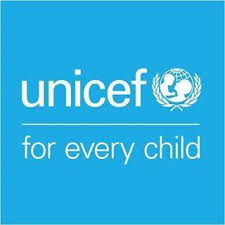Despite registering over 500 million children under the age of five in the last five years, about 150 million children remain unregistered, rendering them invisible to government systems, a new United Nations Children’s Fund (UNICEF) report reveals.
The report, titled “Right Start in Life: Global Levels and Trends in Birth Registration,” highlights progress in securing legal identities for children worldwide but underscores persistent gaps, especially in low-income regions.
According to UNICEF, while global birth registration rates have improved from 75 percent in 2019 to 77 percent in 2024, disparities remain stark.
Sub-Saharan Africa trails behind with only 51 percent of children registered, accounting for over half of the world’s unregistered children—approximately 90 million.
The report provides a detailed breakdown of birth registration rates across sub-Saharan Africa.
Southern Africa leads with an impressive 88 percent registration rate, while Western Africa has reached 63 percent. Eastern and Middle Africa lag significantly, with only 41 percent of children registered.
UNICEF warns that if current trends persist, the region could have over 100 million unregistered children by 2030, exacerbated by a rapidly growing child population and the slow pace of improvement.
The report identifies systemic barriers hindering birth registration globally.
These include weak political commitment, inaccessible registration facilities, unaffordable fees, and lack of public awareness.
In some cases, discrimination based on gender, ethnicity, or religion further compounds the problem.
“Many families face long distances, multiple visits to registration centers, and indirect costs, making the process inaccessible,” the report noted.
Despite these challenges, some countries have made significant strides. Botswana has achieved universal birth registration, while Côte d’Ivoire has surpassed 90 percent.
Other nations like Rwanda, Sierra Leone, and Tanzania have demonstrated sustained progress, serving as models for others.
To bridge the gap, UNICEF has outlined a series of recommendations to ensure every child’s right to a legal identity. These include:
Streamlining registration processes and implementing digital systems.
Leveraging health, education, and social protection systems to promote registration.
Reforming legal frameworks to ensure inclusive and equitable systems.
Empowering communities to demand civil registration as a fundamental right.
“Birth registration is the foundation of legal identity, ensuring protection from exploitation and access to essential services like healthcare, education, and social protection,” said Catherine Russell, UNICEF’s Executive Director.
Birth registration is a fundamental right enshrined in Article 7 of the United Nations Convention on the Rights of the Child (CRC).
Without it, children remain invisible to governments, vulnerable to exploitation, and excluded from opportunities.
While global progress is notable, UNICEF emphasised the urgency of sustained efforts to address regional disparities and systemic barriers.
“Every child has the right to be registered and provided with a birth certificate so that they are recognised, protected, and supported,” Russell added.
Do you want to share a story with us? Do you want to advertise with us? Do you need publicity for a product, service, or event? Contact us on WhatsApp +2348183319097 Email: platformtimes@gmail.com
We are committed to impactful investigative journalism for human interest and social justice. Your donation will help us tell more stories. Kindly donate any amount HERE




